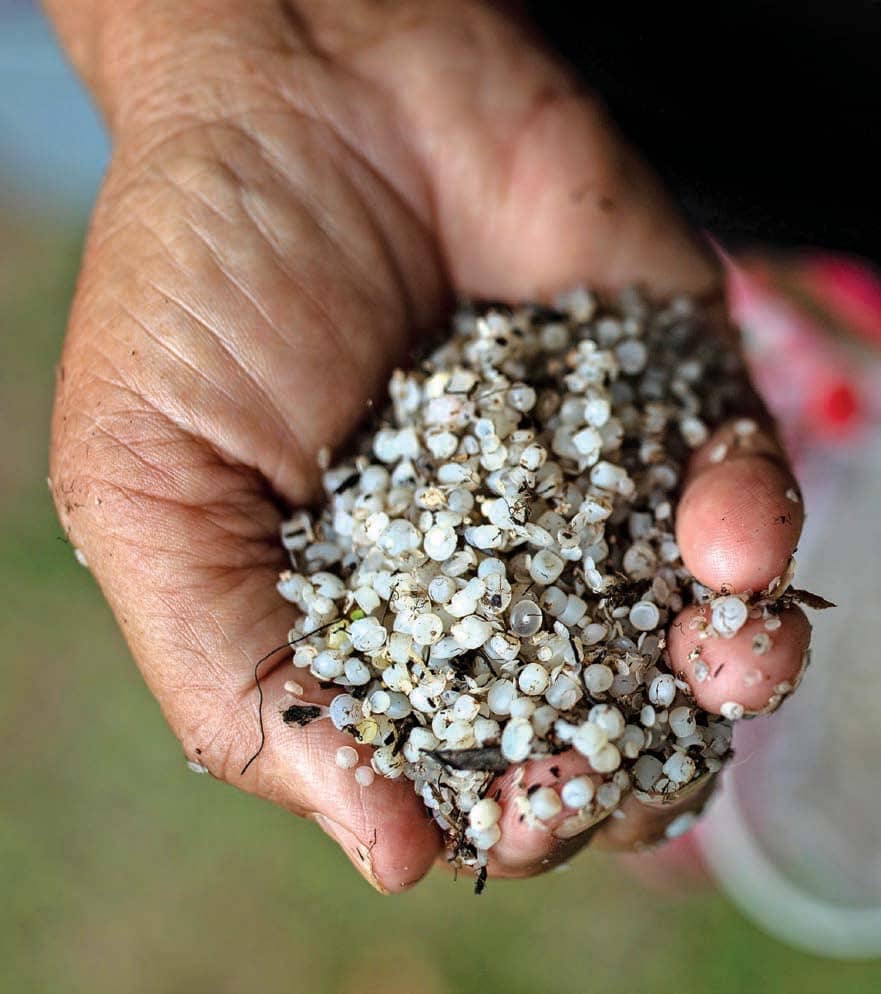
The countryside of St. James Parish, an hour west of New Orleans, is a hodgepodge of bayous and sugarcane fields, smokestacks and riotous tangles of steel pipe. Taiwanese conglomerate Formosa Plastics Group has a $9.4 billion plan to add a new landmark: a giant complex to make petrochemicals used in products such as playground equipment, drainage pipes, and artificial turf.
The company calls it the Sunshine Project. But environmentalists consider its arrival as anything but sunny, saying it could emit more than 13.5 million tons of greenhouse gases annually, equal to about 10% of the increase in U.S. carbon dioxide emissions in 2018 compared to a year earlier. Formosa says emissions from the complex won’t be that high.
Over the past decade, Taiwan has tightened regulations, making major local expansion difficult for Formosa. Meanwhile, the company is spending more than $14 billion to enlarge its operations in the U.S. Gulf Coast region. “They’re not building this in Taiwan,” says Anne Rolfes, founding director of Louisiana Bucket Brigade, a New Orleans-based nonprofit focused on environmental issues related to petrochemical production and oil refineries. “They are looking at us as a colony.”
This story is from the {{IssueName}} edition of {{MagazineName}}.
Start your 7-day Magzter GOLD free trial to access thousands of curated premium stories, and 9,000+ magazines and newspapers.
Already a subscriber ? Sign In
This story is from the {{IssueName}} edition of {{MagazineName}}.
Start your 7-day Magzter GOLD free trial to access thousands of curated premium stories, and 9,000+ magazines and newspapers.
Already a subscriber? Sign In

Instagram's Founders Say It's Time for a New Social App
The rise of AI and the fall of Twitter could create opportunities for upstarts

Running in Circles
A subscription running shoe program aims to fight footwear waste

What I Learned Working at a Hawaiien Mega-Resort
Nine wild secrets from the staff at Turtle Bay, who have to manage everyone from haughty honeymooners to go-go-dancing golfers.

How Noma Will Blossom In Kyoto
The best restaurant in the world just began its second pop-up in Japan. Here's what's cooking

The Last-Mover Problem
A startup called Sennder is trying to bring an extremely tech-resistant industry into the age of apps

Tick Tock, TikTok
The US thinks the Chinese-owned social media app is a major national security risk. TikTok is running out of ways to avoid a ban

Cleaner Clothing Dye, Made From Bacteria
A UK company produces colors with less water than conventional methods and no toxic chemicals

Pumping Heat in Hamburg
The German port city plans to store hot water underground and bring it up to heat homes in the winter

Sustainability: Calamari's Climate Edge
Squid's ability to flourish in warmer waters makes it fitting for a diet for the changing environment

New Money, New Problems
In Naples, an influx of wealthy is displacing out-of-towners lower-income workers